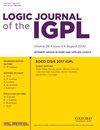针对工业物联网数据集,通过基于混合深度学习的集合方法,实现车队的预测性维护
IF 0.8
4区 数学
Q2 LOGIC
引用次数: 0
摘要
作为全球工业 4.0 的一部分,互联车队已成为工业物联网应用场景的重要组成部分。这些车队中的车辆数量稳步增长。利用机器学习算法对车辆进行监控极大地改善了维护活动。在通过联网智能设备控制机器的情况下,预测性维护的潜力得到了提高。考虑到正常运行时间的优化,预测性维护的潜力也随之增加。这减少了相关时间和劳动力成本。这也大大提高了成本效益比。考虑到车辆故障趋势,本研究通过基于混合深度学习的集合方法(HDLEM)来解决预测性维护问题。作为预测分析引擎的集合框架由三种深度学习算法组成,即修正的考克斯比例危险深度学习(MCoxPHDL)、修正的深度学习嵌入式半监督学习(MDLeSSL)和合并的 LSTM(MLSTM)网络。传感器和历史维护数据都是通过基准方法收集和准备的,用于 HDLEM 的训练和测试。在此,成功实现了多源数据的故障间隔时间(TBF)建模和预测。获得的结果与既定的深度学习模型进行了比较。这种集合框架为实现更有利、高效和可持续的车队管理解决方案提供了巨大潜力。这有助于更好地实施远程信息处理数据,从而确保预防性管理,实现理想的解决方案。多个实验结果凸显了该集合方法的优越性。本文章由计算机程序翻译,如有差异,请以英文原文为准。
Predictive maintenance of vehicle fleets through hybrid deep learning-based ensemble methods for industrial IoT datasets
Connected vehicle fleets have formed significant component of industrial internet of things scenarios as part of Industry 4.0 worldwide. The number of vehicles in these fleets has grown at a steady pace. The vehicles monitoring with machine learning algorithms has significantly improved maintenance activities. Predictive maintenance potential has increased where machines are controlled through networked smart devices. Here, benefits are accrued considering uptimes optimization. This has resulted in reduction of associated time and labor costs. It has also provided significant increase in cost benefit ratios. Considering vehicle fault trends in this research predictive maintenance problem is addressed through hybrid deep learning-based ensemble method (HDLEM). The ensemble framework which acts as predictive analytics engine comprises of three deep learning algorithms viz modified cox proportional hazard deep learning (MCoxPHDL), modified deep learning embedded semi supervised learning (MDLeSSL) and merged LSTM (MLSTM) networks. Both sensor as well as historical maintenance data are collected and prepared using benchmarking methods for HDLEM training and testing. Here, times between failures (TBF) modeling and prediction on multi-source data are successfully achieved. The results obtained are compared with stated deep learning models. This ensemble framework offers great potential towards achieving more profitable, efficient and sustainable vehicle fleet management solutions. This helps better telematics data implementation which ensures preventative management towards desired solution. The ensemble method's superiority is highlighted through several experimental results.
求助全文
通过发布文献求助,成功后即可免费获取论文全文。
去求助
来源期刊
CiteScore
2.60
自引率
10.00%
发文量
76
审稿时长
6-12 weeks
期刊介绍:
Logic Journal of the IGPL publishes papers in all areas of pure and applied logic, including pure logical systems, proof theory, model theory, recursion theory, type theory, nonclassical logics, nonmonotonic logic, numerical and uncertainty reasoning, logic and AI, foundations of logic programming, logic and computation, logic and language, and logic engineering.
Logic Journal of the IGPL is published under licence from Professor Dov Gabbay as owner of the journal.

 求助内容:
求助内容: 应助结果提醒方式:
应助结果提醒方式:


